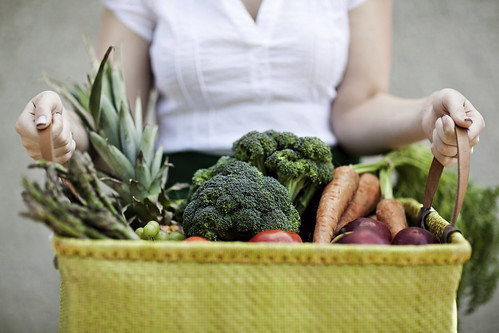
The National Institute of Food and Agriculture (NIFA) opened its doors on Oct. 1, 2009, created by the 2008 Farm Bill. NIFA begins its eighth year as USDA’s premier extramural agricultural science agency by examining its role in helping reduce hunger in the United States.
As a nation, we are making great strides in combating food insecurity—the limited access to adequate food due to a lack of money and other resources. A recent household food security report issued by USDA’s Economic Research Service (ERS) shows the lowest figures on record for food insecurity among children.
Funding and leadership from USDA’s National Institute of Food and Agriculture (NIFA) support many food and nutrition assistance programs that provide low-income households access to food, a healthful diet and nutrition education. Three such programs are the Food Insecurity Nutrition Incentive (FINI), Community Food Projects (CFP), and the Expanded Food and Nutrition Education Program (EFNEP).
Food Insecurity Nutrition Incentive funding supports projects that increase Supplemental Nutrition Assistance Program (SNAP) participant access to fruits and vegetables through incentive programs at the point of sale. In one example, the Fair Food Network provides a “Double Up Food Bucks” healthy food incentive program in nine states to reach more children and families with needed nutritious foods. Double Up provides matching funds (up to $10) for SNAP participants who purchase locally grown fresh produce, a transaction that also supports local farmers and communities.
Community Food Projects aim to increase access to food for low-income individuals. In Choctaw, Mississippi, a $300,000 CFP grant has enabled the Mississippi Band of Choctaw Indians to construct a greenhouse, high tunnels, an orchard and a processing center. Prior to this CFP, little fresh produce was grown on the reservation. Now, low-income families are able to meet about 25 percent of their needs with locally-grown fruits and vegetables.
The Expanded Food and Nutrition Education Program helps more than half a million low-income families each year improve their diets and nutrition practices, stretch their food dollars farther, handle food more safely and increase their physical activity levels. In 2015, NIFA provided $67.9 million in EFNEP funding to 75 land-grant universities across the nation. EFNEP educators worked directly with 119,351 adults and 377,702 children and reached more than 340,000 family members indirectly. Collectively, EFNEP graduates saved more than $1.3 million in food costs and 18 percent more participants reported that they were not running out of food by the end of the month than before the program.
The nutritionists at NIFA are working with our sister agencies across USDA, university partners and communities across the U.S. and its territories, providing opportunities for increased access to healthy, abundant, and nutritious food for all. The reductions in food insecurity reported by ERS are evidence that these collaborative efforts are indeed bearing fruit.
NIFA invests in and advances agricultural research, education and extension and seeks to make transformative discoveries that solve societal challenges.



